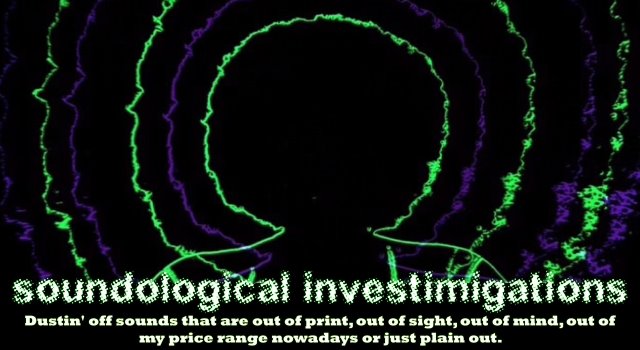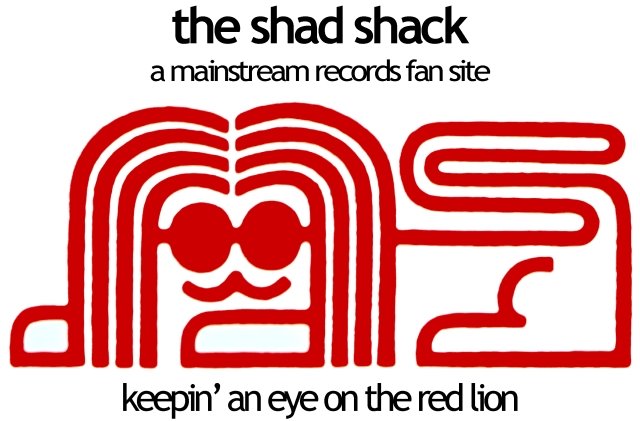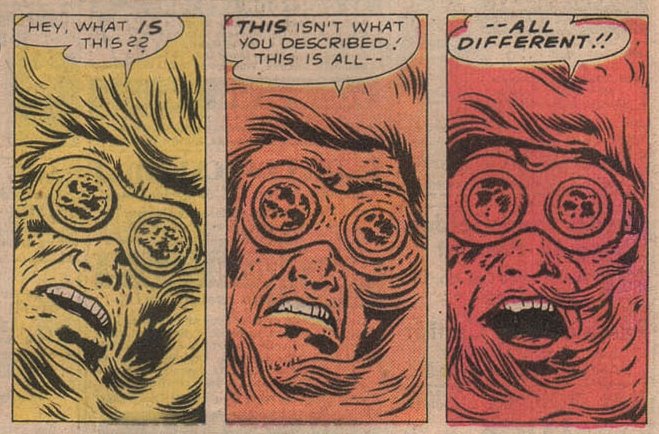HENRY THREADGILL
X-75 Vol. 1
1979
256+ VBR LAME mp3
Vinyl rip & scans from Novus 3013
AMG Bio
by Chris Kelsey
The jazz avant-garde has produced dozens of notable improvisers (not surprisingly, since improvisation is arguably the music's defining element) but relatively few great composers. Henry Threadgill is a member of that exclusive club. With his fellow Chicagoans Anthony Braxton and Muhal Richard Abrams, he's one of the most original jazz composers of his generation. Threadgill's art transcends stylistic boundaries. He embraces the world of music in its entirety, from ragtime to circus marches to classical to bop, free jazz, and beyond. Such might sound merely eclectic in the telling, but in truth, Threadgill always sounds like Threadgill. A given project might exploit a particular genre or odd instrumentation, but whatever the slant, it always bears its composer's inimitable personality. Threadgill is also an alto saxophonist of distinction; his dry, heavily articulated manner is a precursor to that of a younger Chicagoan, the alto saxophonist Steve Coleman (no coincidence, one would suspect).
Threadgill took up music as a child, first playing percussion in marching bands, then learning baritone sax and clarinet. He was involved with the AACM (Association for the Advancement of Creative Musicians) from its beginnings in the early '60s, collaborating with fellow members Joseph Jarman and Roscoe Mitchell and playing in Muhal Richard Abrams' legendary Experimental Band. From 1965-1967 he toured with the gospel singer Jo Jo Morris. He then served in the military for a time, performing with an army rock band. After his discharge, he returned to Chicago, where he played in a blues band and resumed his association with Abrams and the AACM. He went on to earn his bachelor's degree in music at the American Conservatory of Music; he also studied at Governor's State University. In 1971 he formed Reflection with drummer Steve McCall and bassist Fred Hopkins. The trio would re-form four years later as Air and would go on to record frequently to great acclaim. It's 1979 album Air Lore featured contemporary takes on such early jazz tunes as "King Porter Stomp" and "Buddy Bolden's Blues," prefiguring the wave of nostalgia which was to dominate jazz in the following decade.
Threadgill moved to New York in the mid-'70s, where he began forming and composing for a number of ensembles. Threadgill began showing a love for unusual instrumentation; for instance, his Sextett (actually a septet), used a cellist, and his Very Very Circus included two tubas. In the mid-'90s he landed a (short-lived) recording contract with Columbia, which produced a couple of excellent albums. Throughout the '80s and '90s Threadgill's music became increasingly polished and sophisticated. A restless soul, he never stood still, creating for a variety of top-notch ensembles, every one different. A pair of 2001 releases illustrates this particularly well. On Up Popped the Two Lips (Pi Recordings), his Zooid ensemble combines Threadgill's alto and flute with acoustic guitar, oud, tuba, cello, and drums -- an un-jazz-like instrumentation that nevertheless grooves and swings with great agility. Everybodys Mouth's a Book features his Make a Move band, which consists of the leader's horns, with vibes and marimba, electric and acoustic guitars, electric bass, and drums -- a more traditional setup in a way, but no less original in concept.
AMG Review
by Brian Olewnick
After ten years as a member of the innovative trio Air, Henry Threadgill's first album as a leader immediately plunged into experimental waters. He utilized a nonet the likes of which had certainly never been heard before and probably not since: four reed players, four bassists, and a vocalist. The bass quartet was made up of participants in Brian Smith's Bass Violin Choir, and here they provide not only most of the rhythmic impetus but also carry a good deal of the melodic weight, as Threadgill's massive talent for mid-size band arrangements is immediately apparent. Their opening few minutes on "Celebration" presents a marvelous array of bowed, hymn-like tones as well as deeply grooving pizzicato lines.
The songs are less solo vehicles than complete compositions, already prefiguring several of the directions the leader would take with his subsequent ensembles. Only "Air Song," an ethereal piece scored for four flutes and voice, meanders a bit and fails to really catch hold, though even then it presents some wonderful textures and colors. The closer, "Fe Fi Fo Fum," is the most traditionally jazzy of the pieces, allowing for something close to a theme-solos-theme format, Threadgill's alto given a moment to shine in all its acerbic glory. As of 2002, X-75, Vol. 1 was unreleased on disc and, even more disappointingly, there was never a "Vol. 2." But Threadgill fans looking for a link between Air and his Sextett owe it to themselves to search this one out.
Henry Threadgill - Alto Saxophone, Flute, Bass Flute
Douglas Ewart - Bass Clarinet, Piccolo, Flute
Joseph Jarman - Soprano Sax, Flute
Wallace McMillan - Piccolo, Alto Flute, Tenor Sax
Leonard Jones - Bass
Brian Smith - Piccolo Bass, Bass
Rufus Reid - Bass
Fred Hopkins - Bass
Vocals - Amina Claudine Myers
1 Sir Simpleton
2 Celebration
3 Air Song
4 Fe Fi Fo Fum
Soundological HERE or HERE.








































